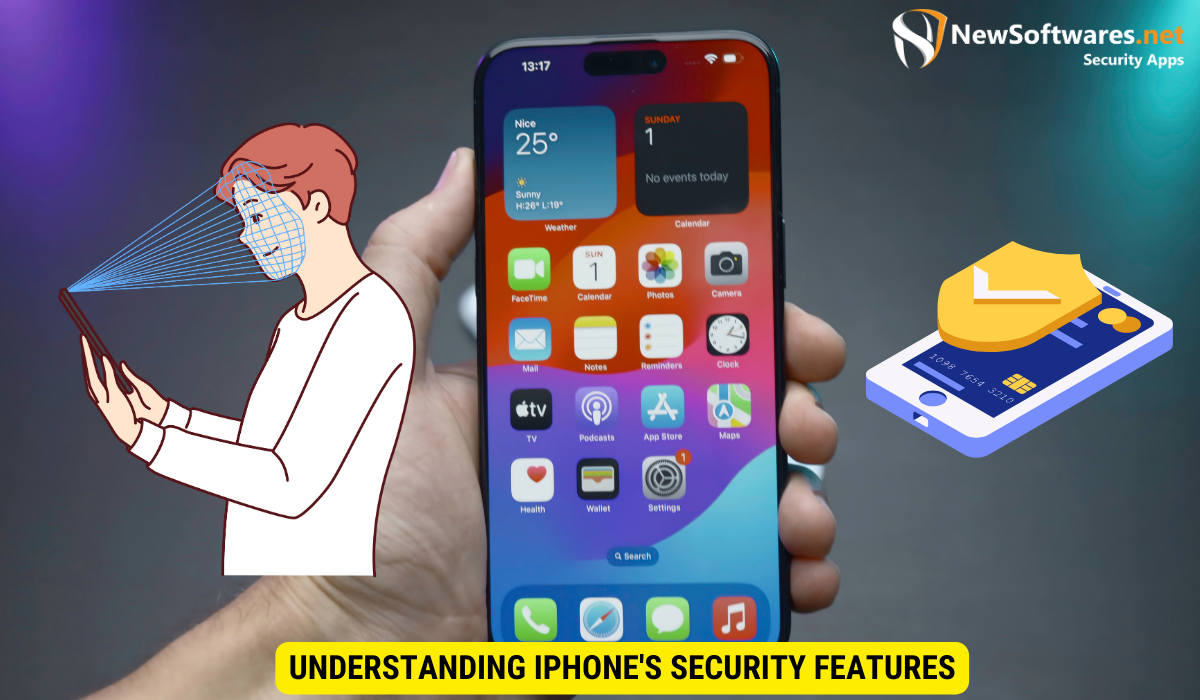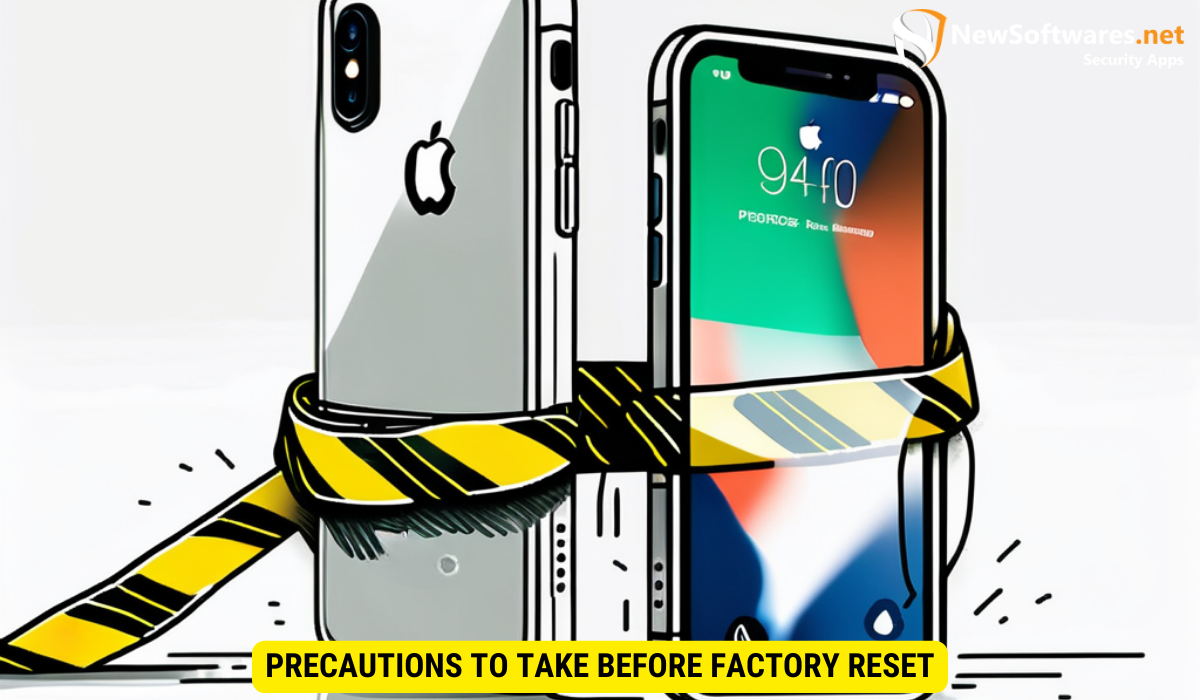To factory reset a locked iPhone without an Apple ID password use the methods such as using iTunes or utilizing Recovery Mode.
In today’s digital age, smartphones have become an integral part of our lives. The iPhone, in particular, offers a wide range of features to enhance our daily experiences. However, what happens when you find yourself locked out of your iPhone, unable to recall your Apple ID password? Is there a way to bypass the security measures and factory reset your device? Together, we will explore the concept of factory resetting locked iPhones without an Apple ID password and discuss the methods available to achieve this.
Understanding iPhone Security Features

The iPhone is equipped with robust security features to ensure the privacy and safety of its users’ data. These features include encryption, touch ID, Face ID, and the requirement of an Apple ID and password for various activities. While these security measures are designed to protect our information, they can pose a challenge when we find ourselves locked out of our own devices.
It’s important to note that Apple continuously updates its security protocols to stay ahead of potential threats and vulnerabilities. These updates not only enhance the existing security features but also introduce new layers of protection to safeguard user data. By staying informed about these updates and implementing them promptly, iPhone users can mitigate the risks associated with cyber threats.
The Role of Apple ID and Password in iPhone Security
Your Apple ID and password serve as your digital identity and are crucial for accessing the full range of iPhone features. These credentials enable you to download apps from the App Store, back up your data to iCloud, manage your device remotely through Find My iPhone, and much more. They are also required when performing a factory reset.
Furthermore, Apple provides users with the option to enable two-factor authentication for their Apple ID, adding an extra layer of security. With two-factor authentication, even if someone gains access to your password, they would still need a second form of verification to log in to your account, enhancing the overall security of your device and personal information.
The Implications of a Locked iPhone
A locked iPhone can be frustrating and inconvenient, especially if you are unable to recall your Apple ID and password. Not only does it restrict your access to important files, contacts, and apps, but it can also hinder your ability to use the device for its intended purposes. That’s where the concept of factory reset comes into play.
In situations where you are locked out of your iPhone, the option of performing a factory reset may seem daunting. However, it is essential to understand that a factory reset erases all data on the device, returning it to its original state. This process can be a last resort for regaining access to your device when all other methods have been exhausted. It is crucial to regularly back up your data to prevent permanent loss in case a factory reset becomes necessary.
The Concept of Factory Reset
Factory reset, also known as a hard reset, involves erasing all the data and settings on your iPhone, reverting it back to its original factory state. This process can be helpful in resolving software issues or preparing your device for resale. However, performing a factory reset typically requires you to enter your Apple ID password.
What Does Factory Reset Mean?
A factory reset wipes your iPhone clean, deleting all personal data, apps, and settings. This process restores your device to its original state, as if it were fresh out of the box. While it can be an effective troubleshooting step, it is important to note that factory resetting your device will permanently erase all data, including photos, videos, messages, and documents, so it should be done with caution.
The Impact of Factory Reset on iPhone Data
When you perform a factory reset, all data on your iPhone is irreversibly erased. This includes your contacts, photos, videos, messages, app settings, and more. It is crucial to ensure that you have a backup of any important data before proceeding with a factory reset.
Legitimate Reasons for Bypassing iPhone Security
While bypassing iPhone security measures should not be taken lightly, there are legitimate reasons why one may need to do so. Let’s explore a couple of situations where bypassing iPhone security may be necessary.
Forgotten Apple ID or Password
It is not uncommon to forget your Apple ID password, especially if you have multiple accounts or have recently changed it. If you find yourself locked out of your iPhone due to a forgotten Apple ID or password, bypassing the security measures becomes a viable option to regain access to your device.
Purchasing a Second-Hand iPhone
If you have purchased a second-hand iPhone and the previous owner did not remove their Apple ID from the device, you may find yourself unable to use the phone without their credentials. Bypassing the security measures in this case allows you to set up and use the device as your own.
Methods to Factory Reset without Apple ID Password
While bypassing iPhone security without the Apple ID password is a challenging task, it is not entirely impossible. There are a few methods that you can explore in order to factory reset your locked iPhone.
Using iTunes for Factory Reset
One method involves using iTunes, the official software for managing iOS devices, to perform a factory reset. By connecting your locked iPhone to a computer with iTunes installed, you can initiate the reset process and restore your device to its factory settings. This method, however, requires the Find My iPhone feature to be disabled on your device prior to the reset.
Utilizing Recovery Mode for Factory Reset
If you are unable to disable the Find My iPhone feature or use iTunes for a factory reset, you can try utilizing Recovery Mode. This method involves putting your iPhone into Recovery Mode and using iTunes to restore it to its original factory settings. Recovery Mode bypasses the need for an Apple ID password during the reset process.
Precautions to Take Before Factory Reset

Performing a factory reset on your iPhone is a serious decision that should not be taken lightly. It is important to take certain precautions to ensure that you are prepared for the process and minimize the risk of losing important data.
The Importance of Data Backup
Prior to factory resetting your locked iPhone, it is crucial to back up any important data that you do not want to lose. This includes contacts, photos, videos, documents, and any other files that are meaningful to you. By creating a backup, you can easily restore your data to a new or freshly reset device.
Understanding the Risks of Factory Reset
When performing a factory reset, keep in mind that all data on your iPhone will be permanently erased. This means that any data that is not backed up will be lost. Additionally, there is always a risk of unintended consequences or complications during the reset process. It is important to weigh the potential benefits against the risks before proceeding.
Key Takeaways
- iPhones are equipped with robust security features that require an Apple ID and password for various activities.
- A locked iPhone can be a hindrance as it restricts access to important data and functionality.
- Factory reset, or hard reset, reverts your iPhone back to its original factory state.
- There are legitimate reasons for bypassing iPhone security, such as a forgotten Apple ID or purchasing a second-hand device.
- Methods to factory reset without the Apple ID password include using iTunes and utilizing Recovery Mode.
FAQs
Can I factory reset my locked iPhone without an Apple ID password?
Yes, it is possible to factory reset a locked iPhone without an Apple ID password using methods such as using iTunes or utilizing Recovery Mode. These methods allow you to bypass the need for an Apple ID password during the reset process.
What happens to my data when I perform a factory reset?
Performing a factory reset on your iPhone permanently erases all data on the device. This includes your contacts, photos, videos, messages, and app settings. It is crucial to back up any important data before proceeding with a factory reset.
Is bypassing iPhone security legal?
Bypassing iPhone security can fall into a legal gray area and may be considered illegal in certain jurisdictions or circumstances. It is recommended to familiarize yourself with the laws and regulations in your country before attempting to bypass iPhone security measures.
Can I restore my data after a factory reset?
If you have created a backup of your data prior to performing a factory reset, you can easily restore your data to a new or freshly reset device. Backing up your data ensures that you do not lose important files, contacts, photos, and other information during the reset process.
Should I factory reset my locked iPhone?
Deciding whether to factory reset your locked iPhone depends on your specific situation and needs. Consider the potential benefits and risks before proceeding with a factory reset. It is advisable to seek professional assistance or guidance if you are unsure about the process.
Conclusion
In situations where you find yourself locked out of your iPhone and unable to recall your Apple ID password, factory resetting your device may seem like the only option. While it requires caution and the risk of data loss, there are methods available to bypass the security measures and regain access to your device. It is important to weigh the potential consequences against the benefits and take necessary precautions, such as backing up your data, before proceeding with a factory reset.
